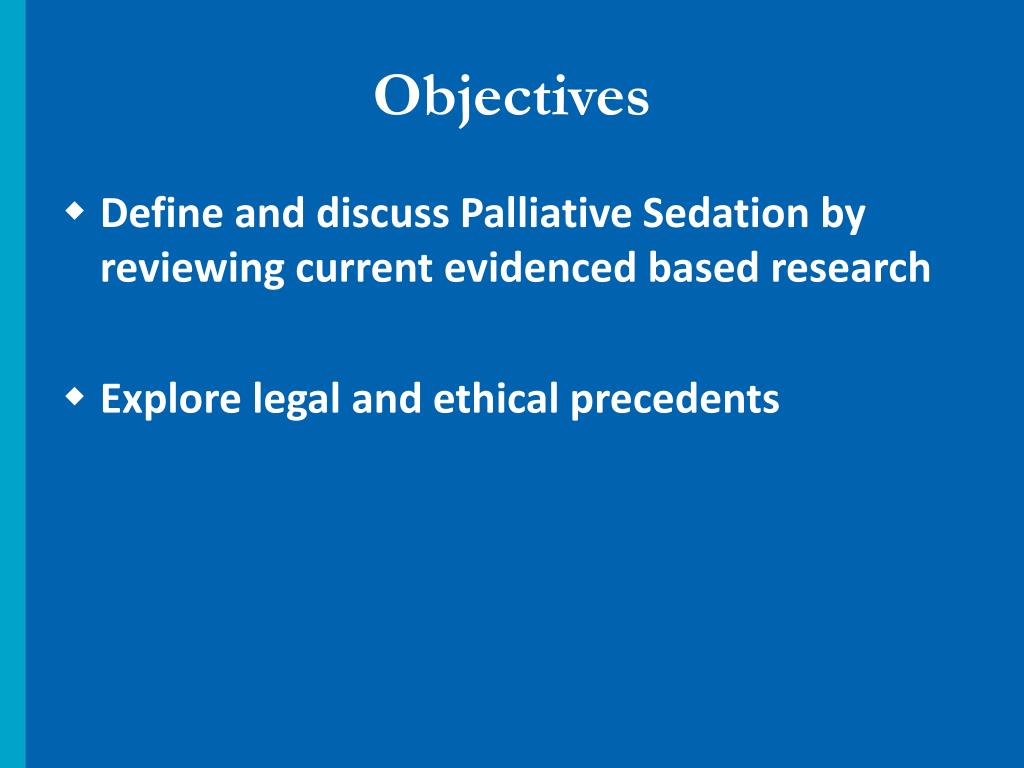

The Supreme Court speaks-not assisted suicide but a constitutional right to palliative care. 2008 25:112-20. Crossref Medline Google Scholar To die, to sleep: US physicians' religious and other objections to physician-assisted suicide, terminal sedation, and withdrawal of life support. Curlin FA, Nwodim C, Vance JL, Chin MH, Lantos JD. Religion, conscience, and controversial clinical practices. Curlin FA, Lawrence RE, Chin MH, Lantos JD. Sedation, alimentation, hydration, and equivocation: careful conversation about care at the end of life. 1998 12:255-69. Crossref Medline Google Scholar Sedation for intractable distress in the dying-a survey of experts. Glenview, IL: American Academy of Hospice and Palliative Medicine 2006. Approved by the Board of Directors, 15 September 2006. Position Statements: Statement on Palliative Sedation. American Academy of Hospice and Palliative Medicine. American College of Physicians-American Society of Internal Medicine. ACP-ASIM End-of-Life Care Consensus Panel. Responding to intractable terminal suffering: the role of terminal sedation and voluntary refusal of food and fluids. Palliative options of last resort: a comparison of voluntarily stopping eating and drinking, terminal sedation, physician-assisted suicide, and voluntary active euthanasia. 2005 8:1127-34. Crossref Medline Google Scholar The growth of palliative care programs in United States hospitals. Morrison RS, Maroney-Galin C, Kralovec PD, Meier DE. They recommend that palliative care and hospice programs develop clear policies about PPS and PSU, including mechanisms for training and ensuring competency for clinicians, and approaching situations where individuals or institutions may conscientiously object. In this article, the authors explore the clinical, ethical, and legal issues associated with these practices. There is more ethical consensus about PPS than PSU. Palliative sedation with the intended end point of unconsciousness (PSU) is a more controversial practice that may be considered for much fewer refractory cases. To relieve suffering may require progressive increases in sedation, sometimes to the point of unconsciousness, but consciousness is maintained if possible. Proportionate palliative sedation (PPS) uses the minimum amount of sedation necessary to relieve refractory physical symptoms at the very end of life. Palliative sedation is a potential way to respond to such suffering, but access is uneven and unpredictable, in part because of confusion about different kinds of sedation. Despite receiving state-of-the-art palliative care, some patients still experience severe suffering toward the end of life.


 0 kommentar(er)
0 kommentar(er)
